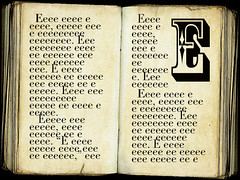
Speakers: Katherine Leach and Matthew Connor Sullivan, Harvard
eBooks have not supplanted pBooks. Providing access to both formats is not possible…even for Harvard.
Users really do want and use both. There is a need for a better understanding of user behavior for both formats.
In 2014, they purchased the complete Project Muse collection, which included a significant and intentional overlap with their print collection. This allowed for a deep comparison and analysis.
You cannot compare them directly in a meaningful way. There are many ways of counting eBooks and pBooks are notoriously undercounted in their use. They looked at whether or not a book was used, and if it was used in only one format or multiple, and then how that compared to the average use across the collection.
26% of titles were used in both formats over the time period, only .5% on a monthly basis. It’s sometimes suggested that eBooks are used for discovery, but even at the monthly level this is not reflected in the data. The pattern of use of each format is generally about the same over the semester, but eBook use tends to be a little behind the pBook use. But, again, it’s difficult to get precise patterns of eBook use with monthly reports. There was no significant differences in format use by subject classification or imprint year or publisher, particularly when factoring the number of titles in each category.
They looked at the average decrease of a pBook over a four year period. They found a 35% decrease in circulation for each imprint year over that time, and this is without any impact of eBook. This is not always factored into these kinds of studies. They found that the decrease increases to 54% when eBooks are added to the mix. There’s also the issue of print use decreasing generally, with monographs losing out to eresources in student and faculty citation studies.
HSS at Harvard has been very clear that they want to continue the print collection at the level it has been, but they also want electronic access. How do we work with publishers to advocate for electronic access without having to purchase the book twice?
Audience Q&A:
What about providing short term loan access for the first 3-4 years? Harvard doesn’t like to purchase eBooks they don’t have perpetual access to.
P&E has been available for journals, why not books? Some publishers have worked with them to give deep discounts on print with an eBook package.
What has been the impact of electronic reserves on use? Haven’t looked at it.
How do you know if someone looked at the eBook and determined they didn’t want/need and that is why the pBook wasn’t used? Hard to determine. They don’t use eBook usage to drive the print acquisition — usually they already have the pBook.
Considering the lifecycle and the decrease in use over a short period of time from imprint year, does that cause you to question the purchase of eBook backfiles? eBook use over that time didn’t seem to decrease as significantly as the pBook.
